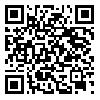Introduction: Educational assessment varies in terms of objectives and the time. The formative assessment type considers learning as a progressing and continuing process. Since formative assessment is carried out in different ways, this study aimed to investigate the effect of formative tests on the mean score of general psychology course among rehabilitation students in Iran University of Medical Sciences. Methods: This quasi-experimental static-group comparison study was performed in the second semester of 2014-15 academic years on 58 students of audiometry, speech therapy, and physiotherapy who were attending the general psychology course in faculty of rehabilitation, Iran University of Medical Sciences. Three fields of study with the same course and instructor were selected using stratified sampling. For two experimental groups, one was given unannounced formative test and the other was given announced formative test. The control group was being taught the usual way. The three groups were simultaneously given a similar test for their final exam. Data were analyzed using ANOVA, independent t-test, correlation test and Spearman’s and Kendall’s Tau coefficients. Results: The mean final scores were (18.60+2.2) in the unannounced test experimental group, (18.45+2.94) in the unannounced test experimental group and (18.20+3.1) in the control group. ANOVA test results showed no significant difference between the mean scores of students (p=0.47). Conclusion: The results showed that formative assessments, both announced and unannounced, had no impact on the learning of rehabilitation students. Since formative assessment may provide instructors with useful information about problems of the education program, it is suggested that future research examine other functions of this type of assessment
Received: 2015/08/15 | Accepted: 2015/12/9 | Published: 2016/03/15 | ePublished: 2016/03/15
| Rights and permissions | |
 |
This work is licensed under a Creative Commons Attribution-NonCommercial 4.0 International License. |


